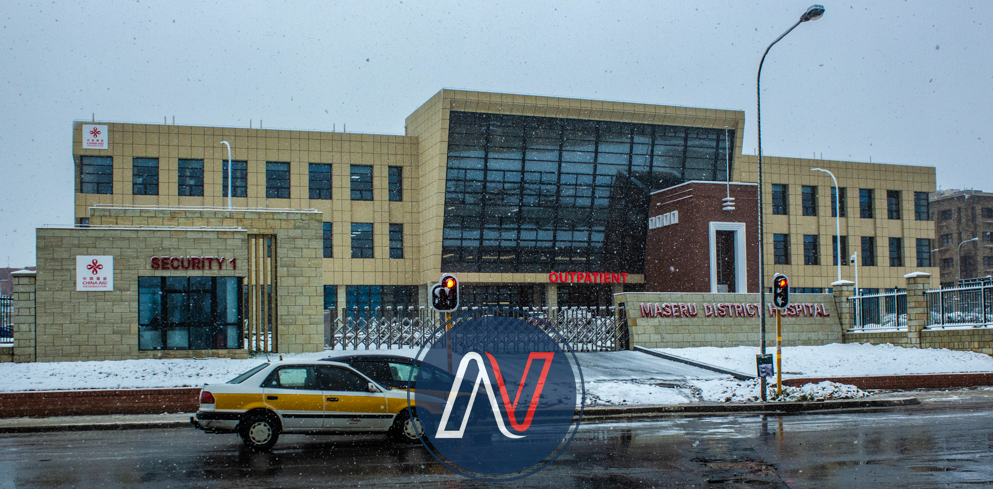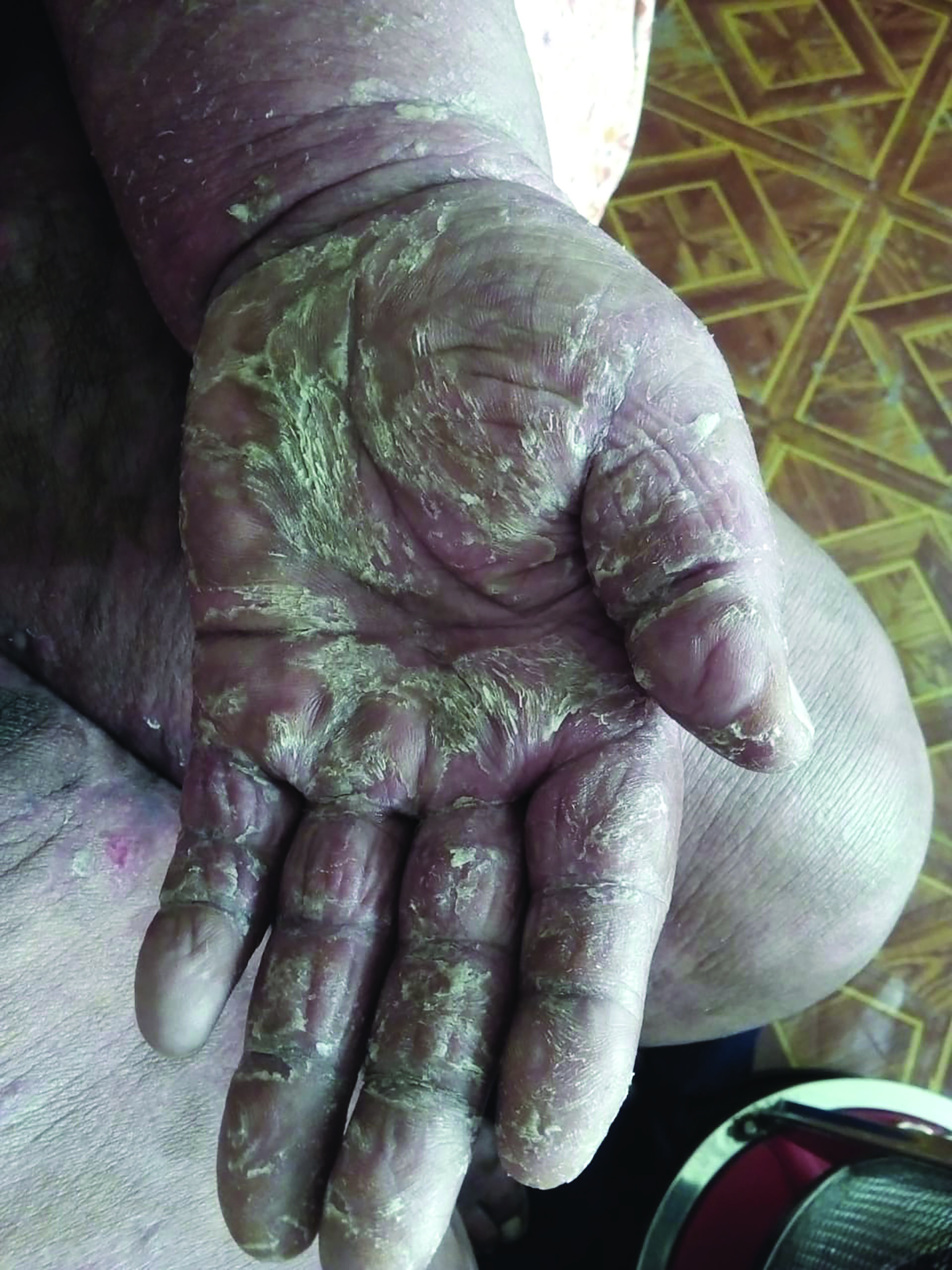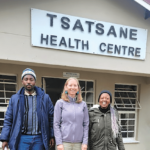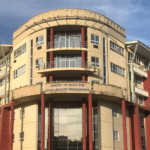…Inside sources reveal neglect, mismanagement, and rising deaths at Lesotho’s flagship health facility
…Over 100 preventable deaths have gone unaccounted for since June 2024
Once hailed as Lesotho’s most modern public hospital, a beacon of hope for thousands of Basotho in need of quality healthcare, Maseru District Hospital, formerly Queen II, has descended into chaos, neglect, and human suffering.
A Newsday investigation, based on testimonies from multiple insiders, reveals a deepening crisis at the hospital. Instead of saving lives, insiders allege that more than 100 preventable deaths have gone unaccounted for since June 2024, the result of negligence, misdiagnosis, and management failure.
Constructed with funding from the Government of China and completed in 2023, Maseru District Hospital was designed to accommodate 200 beds and deliver advanced medical services, including specialised ophthalmology (eye care), intensive care, dialysis, CT scans, cancer treatment, and comprehensive care for both non-communicable and infectious diseases.
However, doctors, nurses, and administrative officers who spoke to Newsday under strict anonymity say the facility is far from operating as envisioned. They describe a broken system crippled by poor leadership, infighting among senior staff, and a workforce too disorganised to meet even basic patient needs.
An internal medical source painted a grim picture.
“The hospital is described as state-of-the-art in healthcare service and eye-specialised care, but between a lack of adequate doctors and incompetent nurses, we see far fewer patients than expected. Each doctor manages a maximum of 30 patients per day because of constant conflict between the matron and doctors from different departments,” the source said, adding that attempts by management to hold regular meetings to resolve these disputes have repeatedly failed.
“After the hospital opened in June 2024, senior staff tried for six months to organise meetings, but the superintendent, Dr. Masupha, never showed up. Eventually, the meetings became redundant,” the source continued.
They noted that with no oversight or pressure from the Ministry of Health, “it’s now a free-for-all for anyone who works at the hospital.”
A nurse from one of the clinical departments described severe disorganisation and uneven distribution of staff.
“There are wards overflowing with nurses doing nothing, while critical departments like ICU, Theatre, and the Eye Department run on just four to six nurses. When the matron assigns you to a unit, you don’t move, even if doctors need urgent assistance,” the nurse said.
This breakdown, the nurse noted, has had grave consequences, with some nurses reportedly exploiting the chaos to disregard doctors’ instructions entirely.
“Everyone does as they please. Some nurses disappear mid-shift, leaving patients unattended. Others act as doctors, misdiagnosing patients and giving wrong treatment. It’s a mess, and Basotho are paying the price,” the nurse said.
Hospital insiders revealed that between June and October 2024, more than 100 deaths occurred due to negligence, poor communication, and avoidable medical errors.
“Those deaths are never investigated. Even when a few doctors raise the issue, the superintendent acts ignorant, and it’s business as usual,” one source said.
“If it were possible to access mortality data, you would see the scale of the problem, but even the data capturing is so flawed that nothing coming from here can be trusted.”
Attempts by Newsday to obtain official hospital records were unsuccessful, as staff members insisted that such records are “intentionally withheld” to prevent scrutiny.
A senior administrator painted an equally dire picture of shortages in medical consumables and essential supplies, which have forced the hospital to postpone critical operations.
“Major surgeries have been pushed as far as 2027, and the waiting list keeps growing. We’re told there’s no money, so we don’t have a choice,” the source said.
The hospital reportedly received a M10 million budget allocation for the current financial year, yet staff claim the funds have barely covered basic operations.
The worsening conditions at Maseru District Hospital further expose the depth of Lesotho’s collapsing health system. Laboratory samples sent for testing often return late, or not at all, due to supply shortages at the national lab, a separate but critical facility whose failures have deadly consequences.
Another insider said patients are often given ineffective medication.
“The pharmacy is almost always out of stock. Patients are given substitutes or drugs known not to work, simply because there are no supplies,” the source added.
Despite being equipped with modern digital systems for patient management, staff reportedly continue to rely on manual data recording.
“They still register patients manually, and sometimes admitted patients are not labelled correctly. It is dangerous, it causes confusion and creates room for the wrong treatment to be administered,” an administrative officer said.
This mismanagement, insiders allege, also extends to patient referrals. Maseru District Hospital, envisioned to reduce the need for foreign medical transfers, is now sending a growing number of patients back to Queen ‘Mamohato Memorial Hospital, often with the hope of eventual transfer to South Africa, effectively reviving the very financial burden the facility was meant to eliminate.
Attempts to obtain clarity on the mounting allegations were met with silence and fear, as several staff members declined to comment, citing concerns of victimisation. Others dismissed the inquiry as “meddling.”
The hospital’s Head of Ophthalmology and its only eye specialist, Dr. James Chan, confirmed that his department is under severe strain, with more than 1,000 patients currently waiting for surgery.
“We lack basic equipment and consumables to perform operations. My department receives more than 200 patients daily, but I can only see 30 because I’m doing three people’s jobs,” Dr. Chan said.
He described the situation as a growing crisis, adding that the Ophthalmology, ICU, and Emergency Services departments are among the hardest hit by staff shortages.
“Instead of focusing on diagnosis, I’m multitasking as an assistant and administrator. We’re losing sight of our calling as medical practitioners — and it shows in the poor service we’re giving to Basotho,” he said, visibly frustrated.
According to Dr. Chan, poor communication and infighting between nursing leadership and medical staff have further crippled operations.
“I don’t have enough nursing support. There’s a lot of poor communication and management rift between the matron and doctors. We’re supposed to get immediate assistance from nurses, but if the matron has issued a directive, they don’t listen to doctors. We are disgruntled.”
While he declined to comment directly on allegations of deaths caused by negligence, Dr. Chan acknowledged having treated patients who were misdiagnosed, calling the issue widespread.
“In departments like mine, where there’s only one doctor on duty, nurses often go beyond their scope. Instead of limiting their work to checking vitals and recording patient details, they diagnose and prescribe treatment. Most times, they get it wrong, and it causes more harm to patients.”
When asked about the frequency of management meetings, Dr. Chan said he could only speak for his department and referred Newsday to the hospital’s superintendent, Dr. Masupha.
However, efforts to reach Dr. Masupha led instead to the Director of General Health Services, Dr. Makhoase Ranyali, who acknowledged receipt of Newsday’s written questions.
Dr. Ranyali confirmed that the Ministry of Health would respond to the inquiries, but a week later, when Newsday followed up, she said the ministry would “like to have a sit-down” with the publication to explain the issues, though no date was confirmed.
She noted that the ministry was currently focused on the Measles and Rubella Supplementary Immunization Activity (MR-SIA), a public health campaign aimed at boosting childhood vaccination coverage, and could not specify when a meeting might take place.
Dr. Ranyali added that some of the issues had previously been addressed by Dr. Lucy Mapota-Masoabi, the Director of Clinical Services, though Newsday has not seen any formal public response or detailed report on the hospital’s performance since it began operations.
When contacted, Health Minister Selibe Mochoboroane said he was in Quthing for the MR-SIA launch but promised to arrange for Dr. Masupha, the hospital superintendent, to respond directly. He also requested that the questions be sent to him.
At the time of going to print, Dr. Masupha had not made contact.
Summary
- Constructed with funding from the Government of China and completed in 2023, Maseru District Hospital was designed to accommodate 200 beds and deliver advanced medical services, including specialised ophthalmology (eye care), intensive care, dialysis, CT scans, cancer treatment, and comprehensive care for both non-communicable and infectious diseases.
- Each doctor manages a maximum of 30 patients per day because of constant conflict between the matron and doctors from different departments,” the source said, adding that attempts by management to hold regular meetings to resolve these disputes have repeatedly failed.
- “If it were possible to access mortality data, you would see the scale of the problem, but even the data capturing is so flawed that nothing coming from here can be trusted.

Authored by our expert team of writers and editors, with thorough research.










